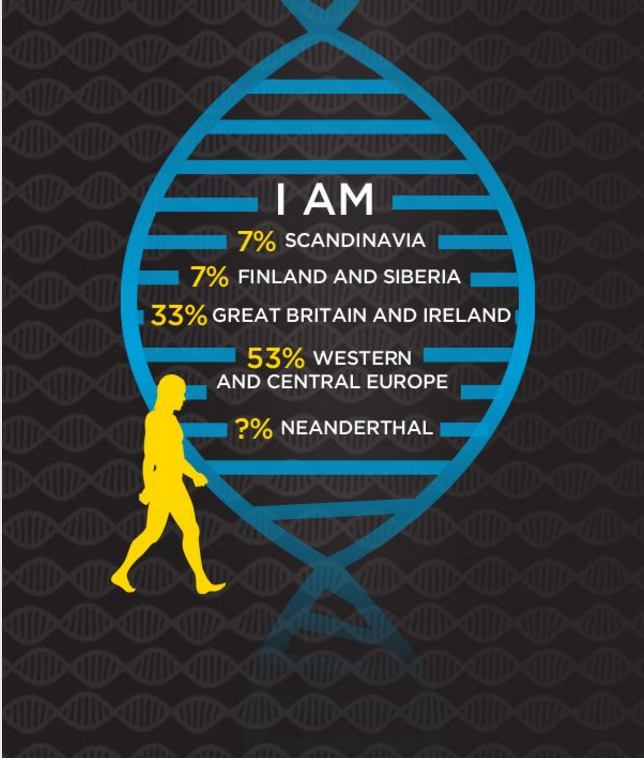 Personal genomics startup Helix, which is developing a digital hub for all things related to DNA testing ranging from direct-to-consumer to doctor-ordered, has announced several partnerships: the Icahn School of Medicine at Mount Sinai, National Geographic and ExploraGen will collaborate to deploy Helix’s genetic-testing service, which is powered by DNA sequencing giant Illumina. Additionally, the company secured an investment from Kleiner Perkins Caufield & Byers, and the company also recently announced a partnership with genetic information company Invitae.
Personal genomics startup Helix, which is developing a digital hub for all things related to DNA testing ranging from direct-to-consumer to doctor-ordered, has announced several partnerships: the Icahn School of Medicine at Mount Sinai, National Geographic and ExploraGen will collaborate to deploy Helix’s genetic-testing service, which is powered by DNA sequencing giant Illumina. Additionally, the company secured an investment from Kleiner Perkins Caufield & Byers, and the company also recently announced a partnership with genetic information company Invitae.
Helix aims to offer an approachable platform for people who order DNA tests from multiple organizations – National Geographic’s popular ancestry product, Gene 2.0 Next Generation will launch on the Helix platform in November. Helix will send the saliva swab kits, sequence their DNA and store data in the cloud, and National Geographic will look for the ancestry markers in the DNA. Additonally, innovation company Exploragen is working on a number of applications that match DNA and the science of taste to create personalized “epicurean experiences,” according to the company. (The first offering will be Vinome, which identifies and delivers wines tailored to customers’ DNA and taste).
“The genomics industry is no longer just about clinical precautions and general health. It’s quickly touching all areas of our lives, from family planning, to nutrition, to ancestry,” Helix CEO Robin Thurston said in a statement. “We’re building a powerful platform for DNA discovery that enables anyone to connect with relevant, personalized applications from well-known consumer brands, trusted healthcare providers, innovative developers, and everything in between.”
Helix’s test will offer advanced genetic testing that looks at the part of the genome that encodes genes, which other direct-to-consumer tests have not offered. With all the partnerships, however, it hasn’t been decided how exactly consumers will pay for the centralized digital platform to access their genetic interpretations (aside from the National Geographic test, which runs $149). It is also not know whether they will develop their own app.
The partnership with the Icahn School of Medicine at Mount Sinai marks the company’s entrée into healthcare in ways that put it on a new level unlike competitors like 23andMe. The first Mount Sinai application on the Helix platform will be only be available with a clinician’s approval, and will allow prospective parents to learn about their risks of potentially passing on certain inheritable genetic disorders to their children. Additionally, genetic counseling will be offered.
“We are strong advocates for consumers having access to their own genomic information for personal education and insights,” Dr. Eric Schadt, founding director of the Icahn Institute for Genomics and Multiscale Biology said in a statement. “We are excited to launch our first application on the Helix platform to enable a view into genes of interest for reproductive health and look forward to developing additional products on the platform over time.”
Helix appears to be moving towards a goal that 23andMe is actively stepping away from: the leading genetic testing company confirmed to BuzzFeed News that they are no longer working on technology for next-generation sequencing, citing a slowdown in customer demand and indications from the FDA that the technology wouldn’t be cleared. But that doesn’t necessarily mean the industry is slowing down, investors said.
“Consumer genomics is an industry that's poised to take off as DNA data becomes more accessible,” Noah Knauf, general partner at Kleiner Perkins Caufield & Byers said in a statement. “DNA applications across a wide range of categories may be hard to imagine now, but will soon be commonplace. We're excited to have the opportunity to invest in Helix at an inflection point in growth as it continues to expand its partner ecosystem and inspire consumers to understand their DNA.”

















